Executive election results for 2023-2024
The online election by members took place between 15th December 2022 and 16nd January 2023.
844 ballots were received from a constituency of 2541 members - a turnout of 33%.
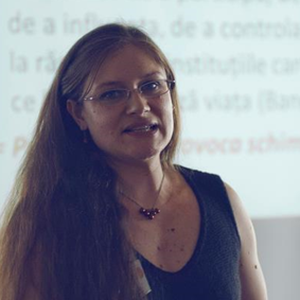
I studied, worked, and carried out both academic and applied research in The Netherlands, France, Romania, Germany, Italy, Ireland. A member of PrecAnthro since its inception (2016), I contributed to the precarity report and supported EASA's consultancy initiative on anti-precarity organizing across Europe. In 2020, I became co-convenor of the Anthropology of Security network (ASN); I advocated for and obtained the full reimbursement of conference expenses for precarious scholars (including from the global South). I am currently co-convening the merged ASN & PACSA networks, and in this quality I initiated the setup of a mentorship network for EASA early career anthropologists researching challenging fields in terms of safety and ethics.
Mentorship and concrete support for precarious scholars (including childcare facilities during EASA conferences and the setup of an emergency fund for precarious members), anti-precarity advocacy at structural level, and enhancing anthropology's public relevance in Europe are priorities on my agenda.
Nominating Member: Fiona Murphy (Trinity College Dublin); Supporting Member: Martin Fotta (Czech Academy of Sciences)
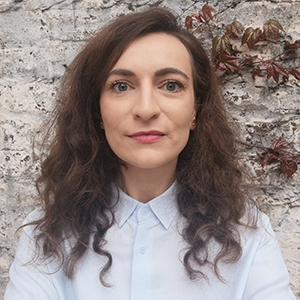
Two years ago, I ran (unsuccessfully) for the EASA election on an agenda that drew attention to the rising mental health crisis in universities. The situation looks even more dire nowadays in our post/pandemic environments.
I am running for the EASA election on a platform prioritising: 1) mental health in academia, and its links with precarity and intersectional inequalities; 2) revalorising teaching within hiring, within EASA, and within the discipline; 3) rethinking anthropology, including its ableist foundations.
As a longstanding member of PrecAnthro that has been deeply affected and troubled by rising mental health challenges in academia, I am committed to strengthening EASA's work on the theme of mental health, and its relations with academic precarity and intersectional inequalities. Instead of tolerating and privatising the rising rates of depression, anxiety, burnout and mental distress experienced by students and staff alike, we need to re/politicise and place it firmly on EASA's agenda.
Nominating member: Mariya Ivancheva (University of Strathclyde); Supporting member: Matan Kaminer (Hebrew University of Jerusalem)
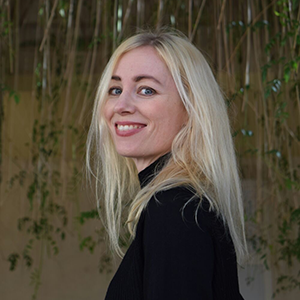
I received my anthropological training in Norway and Sweden. Having worked for many years at Stockholm University, I am now Associate Professor at the Department of Social Anthropology at the University of Oslo. My ongoing research deals with global supply chains and labour, and I'm committed to anthropology's public voice and impact. As an anthropologist working both in and on Europe, I see EASA's role as vital in providing a platform for generating and sharing knowledge that can help us tackle the political, economic and environmental challenges of our times.
If elected to the EASA executive committee, I would work towards new ways of developing anthropology's public voice in collaboration with the organization's many excellent networks. As a committee member I would be dedicated to supporting early-career scholars in different parts of Europe, not least by strengthening EASA's engagement with centre-periphery issues that are related to funding-possibilities, language and publishing.
Nominating member: Thomas Hylland Eriksen (University of Oslo); Seconded by: Ulf Hannerz (Stockholm University)
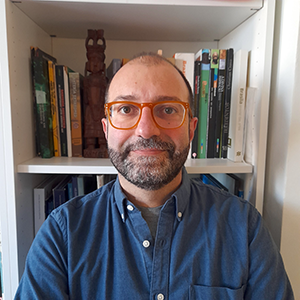
I am a long-standing member of EASA. I am a member of VANEASA (Visual Anthropology Network) and Co-Founder of ANTART (Art and Anthropology network), which I co-convened for two years. I belong to the local committee that will help organize the next EASA meeting in Barcelona 2024.
I am from Barcelona, but I studied and worked as an anthropologist in different countries: Spain, France, the US, Brazil, and the UK. I have done research in different fields: Religion, History, Art, Mobility, in Europe and the Americas.
If elected, I would like to contribute to three issues in particular: denouncing precarity, both in terms of labour conditions and because of its consequences in the production of knowledge; internationalising EASA further, fostering relations with non-European associations and colleagues, while respecting European national schools; and critically discussing our relationship with other disciplines, beyond the celebration or condemnation of interdisciplinarity.
Nominating member: Marilyn Strathern (Cambridge University); Supporting member: Alberto Corsin Jiménez (Spanish National Research Council (CSIC))
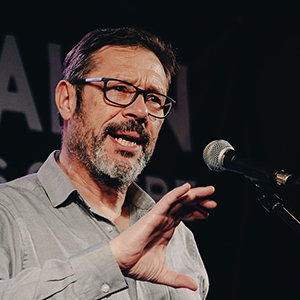
My name is Dominic Bryan and I am Professor in Anthropology at Queen's University Belfast. I am a passionate believer in the utility of anthropology as a tool of critical politics, a space of education and a platform for policy change.
My research interests focus on political rituals, public space, identity and the impact of peace building on the city of Belfast. I have previously worked with the Northern Ireland Human Rights Commission, I am a Fellow of the Senator George J Mitchell Institute for Global Peace, Chair of the charity Diversity Challenges, former co-chair of the Northern Ireland Commission on Flags, Identity, Culture and Tradition and chair of the short time working group on Facilitating Peaceful Assemblies in Scotland.
I was on the organising committee and scientific committee for EASA 2022 in Belfast and will be committed to working with EASA in advancing a public anthropology.
Nominating member: Dimitris Dalakoglou (Vrije Universiteit Amsterdam); Supporting member: Joseph Webster (Cambridge University)
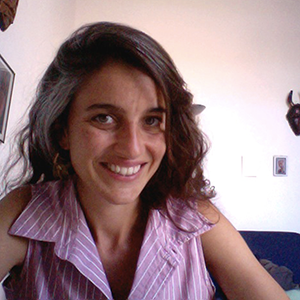
PhD EHESS, Centre Norbert Elias, ATER LPED-AMU (attachée temporaire d'enseignement et de recherché, Aix-Marseille Université) Marseille, France. Following a first degree in Italy, I completed my Ph.D. in France, at the Ecole des Hautes Etudes en Sciences Sociales, in January 2022. I am now working as a graduate assistant at the Aix-Marseille Université.
As a recent graduate, I am very much aware of the difficulties that one confronts in the early years of an academic career, and I hope to strengthen the EASA's inclusion and support for young anthropologists. I would also wish to support the development of a forum to discuss the teaching of social anthropology in schools, and in undergraduate and post-graduate programmes.
EASA is a strong association, with a great diversity of anthropological perspectives, subjects, and opportunities for interaction. My engagement within EASA would be to strengthen these features, working in the enforcement of instruments of sharing and collaboration especially between networks and teaching issues.
Nominating member: Valeria Siniscalchi (Ecole des Hautes Etudes en Sciences Sociales, Marseille). Supporting member: Adam Kuper (London School of Economics)
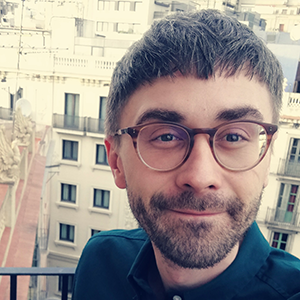
I was trained in social anthropology and social philosophy in Vienna, Lancaster, and Frankfurt. I am a researcher at the University St. Gallen and the Institute for Social Research Frankfurt. Committed to economic and political anthropology, my fieldwork led me to Eastern Africa, Greece, and Central Europe. I worked on corporations and NGOs, solidarity practices and debt, and fiscal politics and deservingness.
EASA introduced me to a community of colleagues and friends. Since 2020, I have been co-convenor of the Anthropology of Economy Network and a member of PrecAnthro to foster exchange and solidarity, a practice I want to consolidate as a member of the Exec.
If elected, my aims would include:
1) Leveraging the organisation to counter precarization and under-funding
2) Strengthening EASA's voice as a transnational scholarly organisation in times of war, climate crisis, and rising inequalities
3) Supporting the transformation of the discipline by decolonial and queer approaches
Nominating member: Violetta Zentai (Central European University); Supporting member: Mariya Ivancheva (University of Strathclyde)
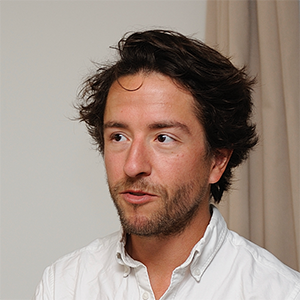
In a world that separates us, the question of what brings us together is more than ever urgent. Committed to a public anthropology, I have worked collaboratively with activists, curators, and artists across the fields of migration, art, and difficult heritage in Germany, Italy, and France for many years, presently as coordinator of the ERC project Minor Universality. Narrative World Productions After Western Universalism.
As a co-founder (with Roger Sansi) of the EASA Anthropology & the Arts Network, and external member of the last conference scientific committee, I understand the behind-the-scenes complexity of EASA, and am excited to support its running in any capacity. EASA is a platform for debate that can shape how we act publicly as anthropologists, and I will do my best to create a more inclusive and self-critical association that speaks outwards and is not afraid to take a public stance.
With view to the next EASA biennale meeting in Barcelona, I hope to continue building bridges towards creative cultural production, and craft strategies to combat professional precarity.
Nominating member: Sharon Macdonald (Humboldt-Universität zu Berlin); Supporting member: Cris Shore (Goldsmiths University, London)
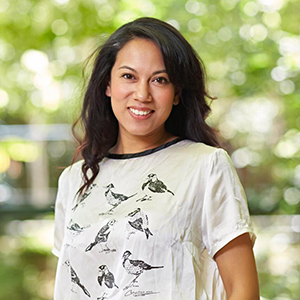
I am a new member of EASA, after having followed the impressive research of many members and networks for several years. I recently relocated from Australia where I was in the Institute for Culture and Society at Western Sydney University, when I was appointed as a Lecturer in Digital Anthropology in the Department of Social Anthropology and the Granada Centre for Visual Anthropology at the University of Manchester.
My aspirations are to become more active in EASA and if elected, to work with the Executive Committee to further a commitment to anthropology in public engagement and educative practices, drawing on my experience in research centres, media studies departments and my own work on digital and mobile media.
Having been an early career scholar on fixed term contracts for a decade prior to my current position, I am committed to valorising the diversity of emerging voices in anthropology, in Europe and beyond.
Nominating member: Daniel Miller (University College London); Supporting member: Angela Torresan (University of Manchester)
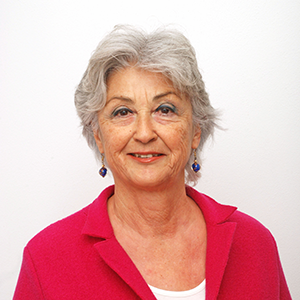
I present my candidature to promote the work of the EASA association and the discipline more broadly. I would like to give value to the best experimental, innovative experiences of anthropologists in the public sectors, encourage and promote a different way of communicating to new audiences and stakeholders and seek new opportunities for work and research outside universities.
I'll be networking with local, regional, national and international institutions, in particular with the European Union, Ministries of Education and Research, the Four Motors for Europe (a transnational and interregional network of four highly industrialized and research-oriented regions in Europe) and Associations.
I would also like to emphasise the importance of networking with the World Anthropological Union (IUAES + WCAA) in order to better contextualise one's activity in a global setting.
I am co-convener of TAN in EASA, also active in IUAES Congresses and WAU with workshops, panels, roundtables.
Nominating member: Noel B. Salazar (KU Leuven); Supporting member: Natalia Bloch (Adam Mickiewicz University in Poznań)
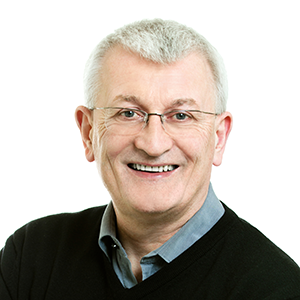
I am currently Professor of Social and Cultural Anthropology at the University of Vienna and Professor Emeritus at the University of Alaska Fairbanks. While I have been an EASA member since the early 1990s, my 20+ years in North American academia (1991-2013) kept me from running for EASA office earlier. Instead, I served as President of the International Arctic Social Sciences Association (IASSA) and chaired departments in Alaska and Austria. Now, I would appreciate the opportunity to lend my experience to the Executive Committee.
At present, I am leading an ERC Advanced Grant project, and am convinced that we social anthropologists could and should play a bigger role in the European funding landscape and conduct research on societally relevant issues. Based on my 30+ years of research experience on and in Russia, I want to explore ways of rethinking research strategies and rebuilding relations with Russian colleagues, once the terrible war of aggression against Ukraine has ended. I want to see a strong European anthropology, in concert with world anthropologies and in productive relations with other disciplines.
Nominating member: Grażyna Kubica-Heller (Jagiellonian University); Supporting member: Franz Krause (University of Cologne)
The new executive (2023-2024) will thus be comprised of Monica Heintz (Secretary), David Mills (Treasurer), Ana Ivasiuc, Alexandra Oancă, Hege Høyer Leivestad, Roger Sansi Roca, Dominic Bryan.






